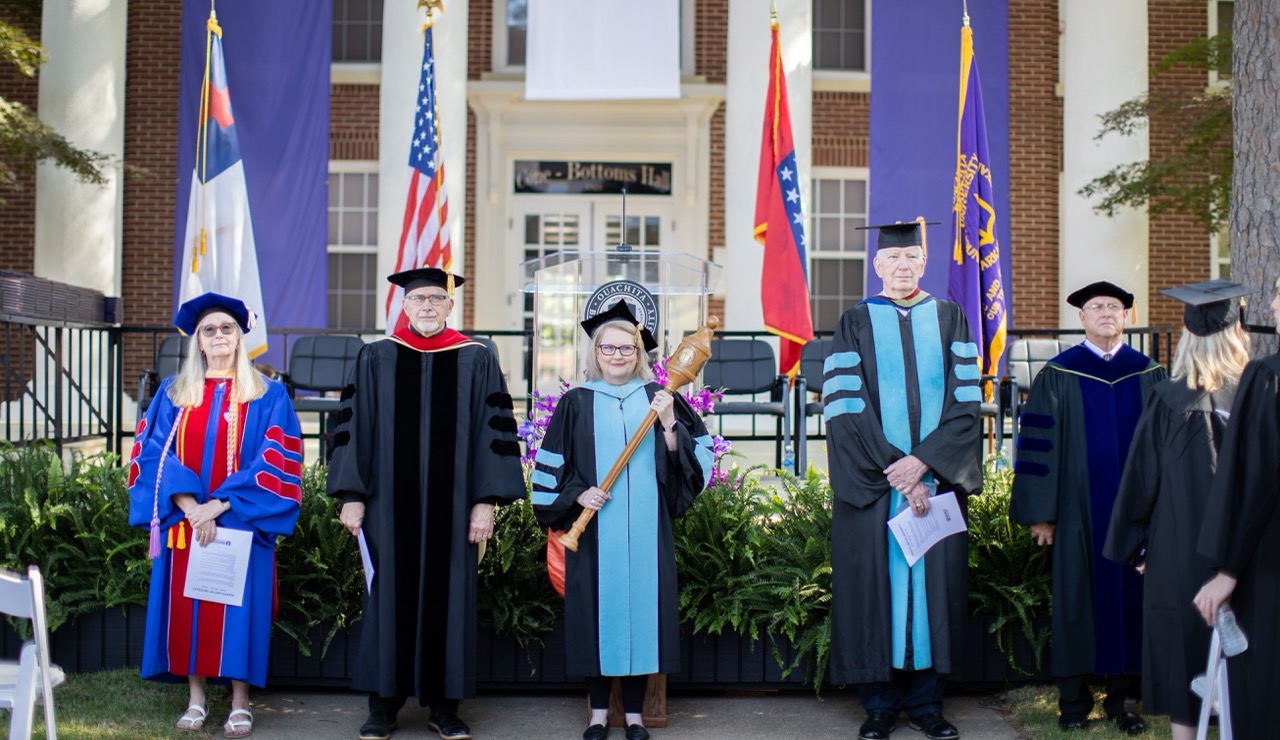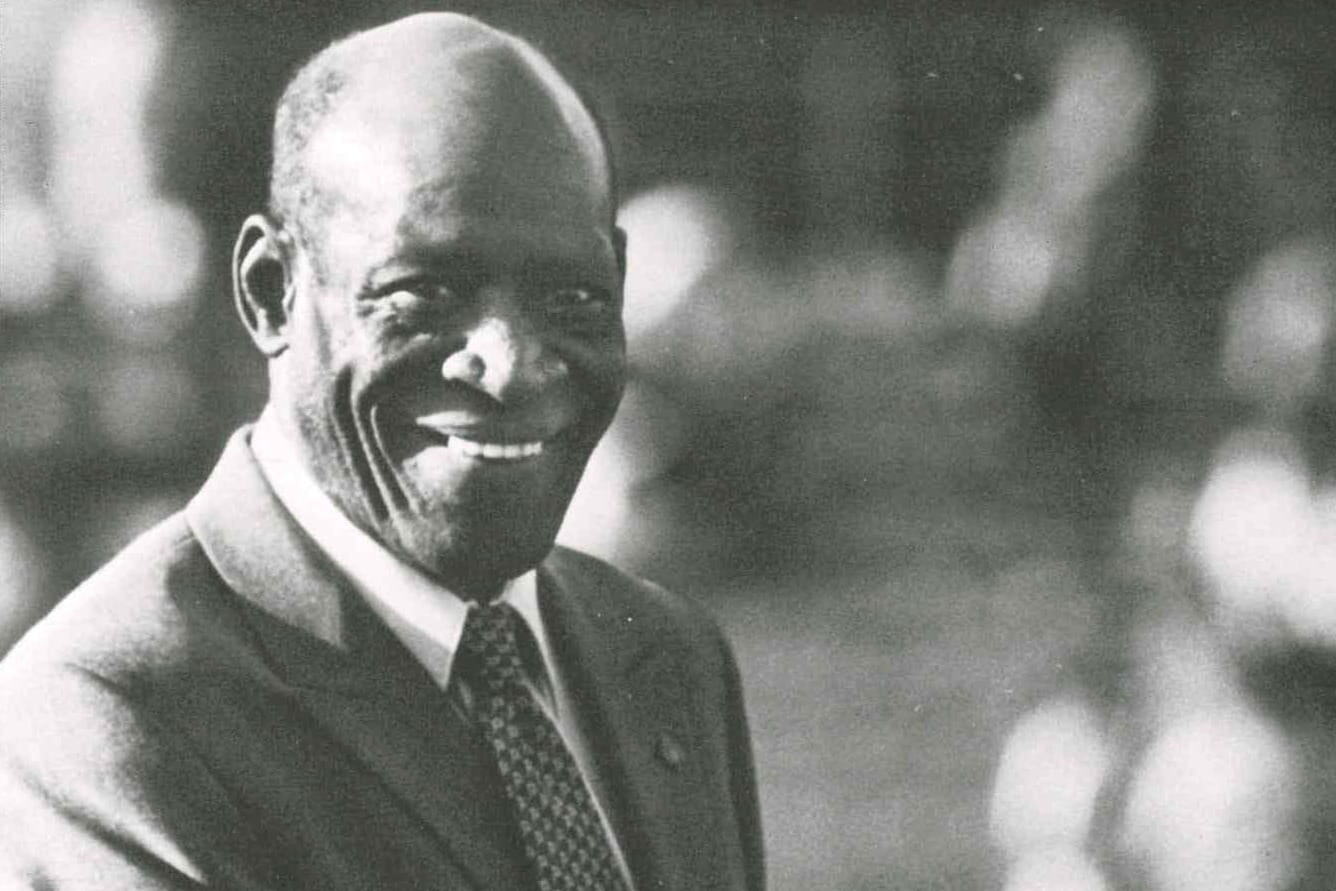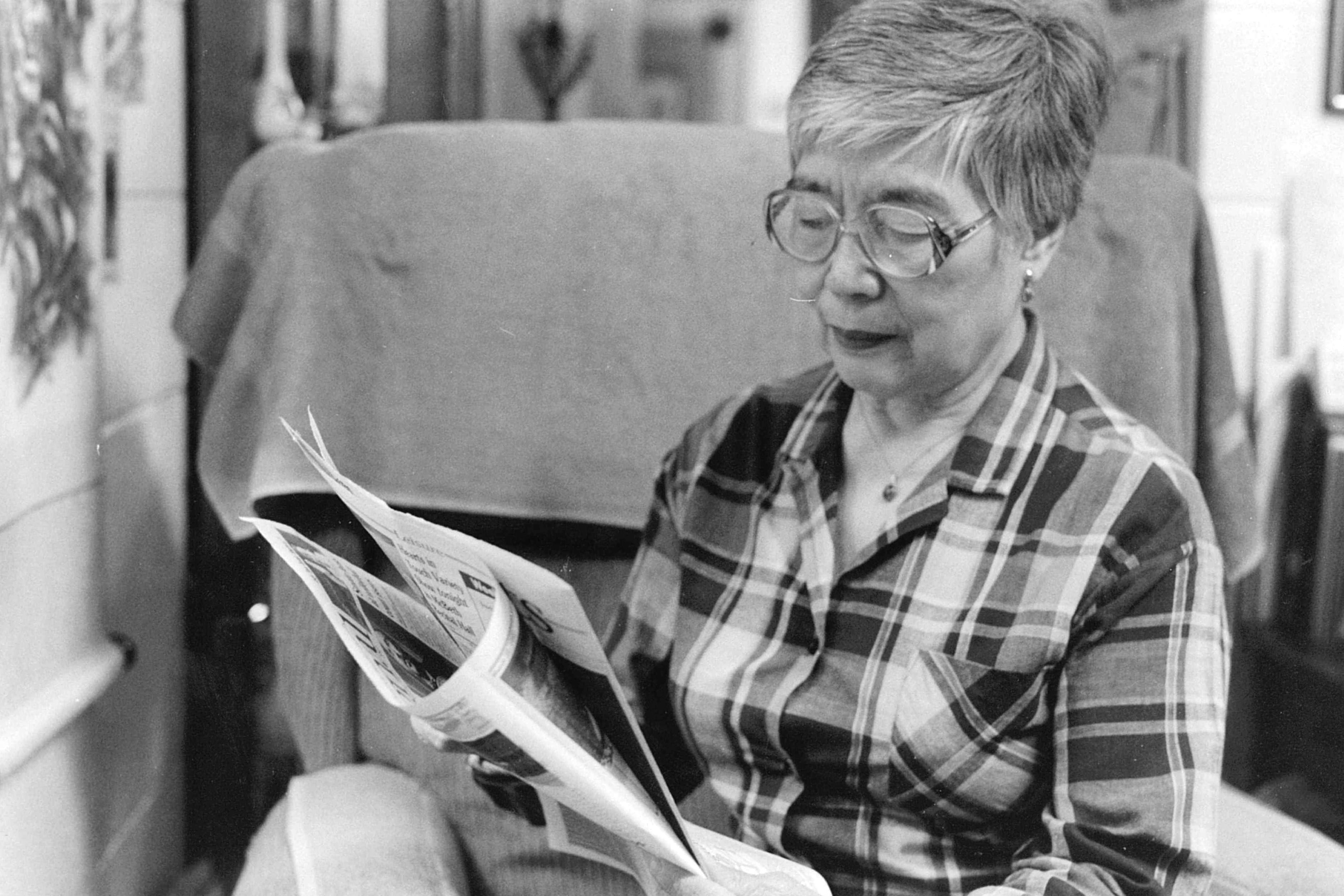Estelle McMillan Blake
“Auntie” Blake
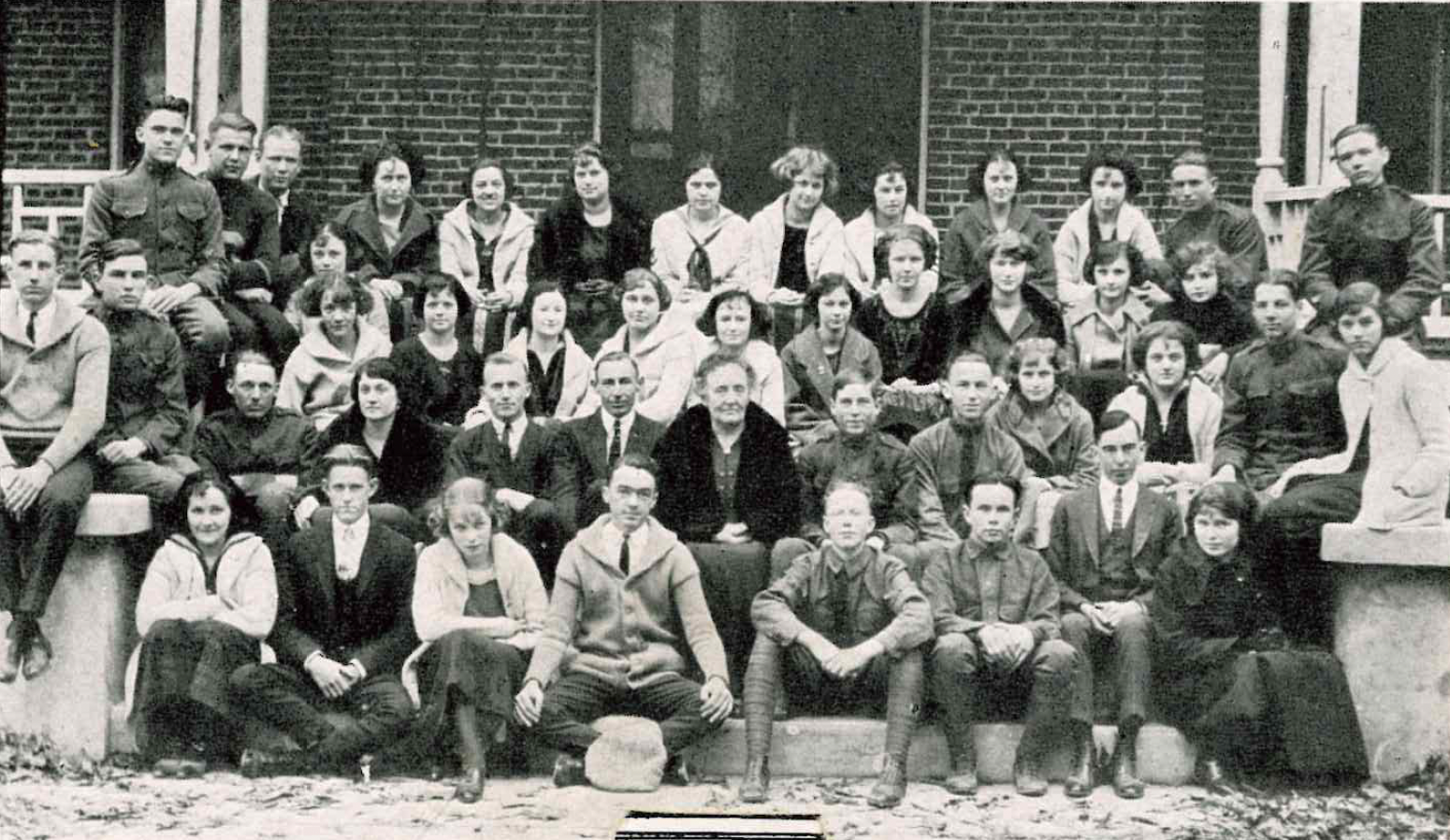 March 15, 2024
- Donald Tatman
March 15, 2024
- Donald TatmanAs we recognize Women’s History Month this March, we’re remembering some of the notable women in Ouachita’s history. Estelle McMillan Blake was an original faculty member of Ouachita Baptist College when its doors opened in 1886. Blake taught English at Ouachita for 53 years. Because of her support of the school’s library, the former Blake Library on campus was named for her in the 1930s. The Arkansas Baptist paper once noted about this beloved faculty member, “every student that has known her has created in his heart an undying love for this great Christian character and teacher.” The following is an excerpt from “Ouachita in the Roaring Twenties,” written by Blake’s nephew-in-law, Donald Tatman.
No history of Ouachita would be complete without a chapter about Estelle McMillan
Blake, an extraordinary, talented, lovable lady. For over fifty years she taught at
Ouachita and much of what Ouachita is today is due to her strength of character and
ability to teach; but more important are the
thousands of young people, now old, whose lives have been literally changed and inspired
because of her.
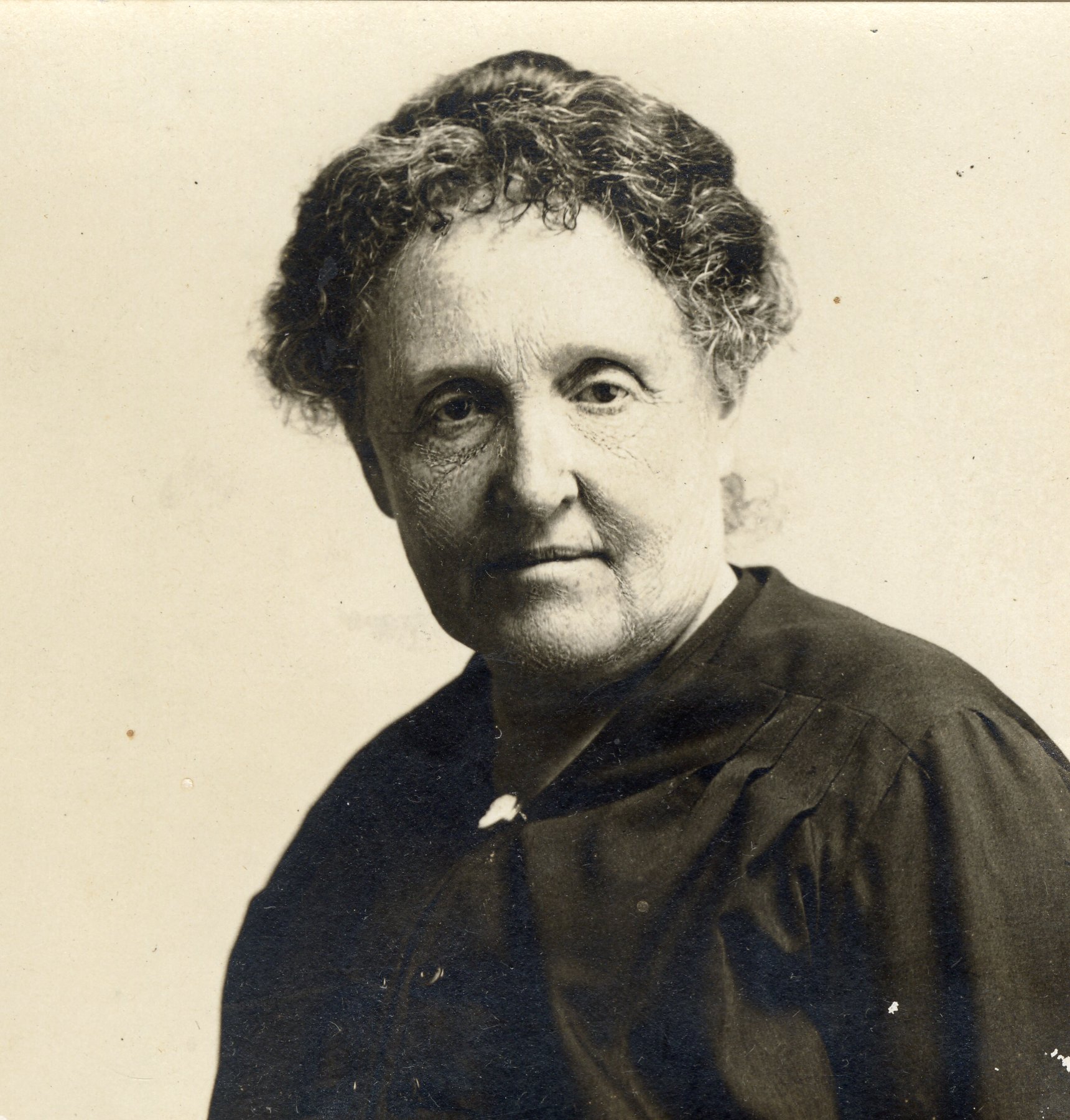
Estelle McMillan Blake, undated
Courtesy of the McMillan family papers from the Ouachita Baptist University archives
I had the rare opportunity of learning more about this remarkable lady than most because, you see, I married one of her favorite nieces, Laurie McMillan. She did have her favorites, and she let it be known. I think it was one way of letting her students know they had to toe the mark if they expected to meet her approval. Her disapproval could be just as devastating as her normally loving disposition was inspiring. Auntie Blake, as I learned to call her, was born just as the War Between the States [sic] broke out. Since her father, Colonel Henry William McMillan, was away, engaged in that conflict, her mother had an unlimited time to spend with her infant daughter, who had learned to read at the age of three.
She was married and widowed by the time she was 25 and so it was that she came back home to begin teaching at the new Ouachita College which had just been established on the bluff of the Ouachita River adjacent to her home. Grief struck again when she lost her only child, a daughter. I think from this grief may have come the reason she adopted all incoming freshmen. She claimed them as her special charges and began to knock away at the rough edges, straightening out the dangling participles, eliminating from our vocabulary "ain't" and "got," and encouraging us to use more descriptive and colorful expressions in our writing and speaking. Wouldn't it be a reflection on her teaching now if some of that improper English crept into this eulogy? If that happens, just say it's been a long time since I studied Freshman English--and some of that English seems to be growing more corrupt all of the time.
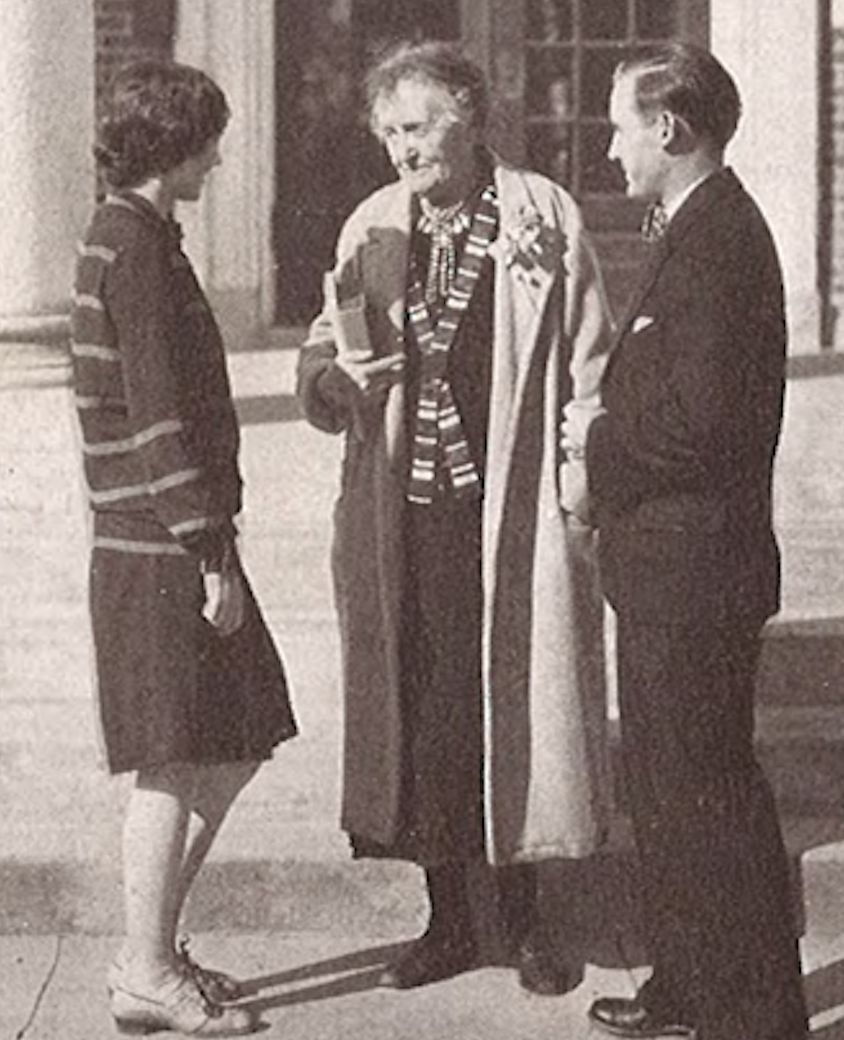
Estelle McMillan Blake with students in front of Cone-Bottoms Hall
Courtesy of the Ouachitonian
As a guide to good literature, we read Browning, Tennyson, Shakespeare and the Atlantic Monthly. She read Chaucer as if it were her native tongue and even the densest of us learned to see the beauty and meaning in Browning. She had much to overcome, just in keeping us from butchering the King's English. At the same time, however, she taught us acceptable manners, decency, and the ability to recognize beauty in the written word and in the world around us.
She talked about pink sunshine and purple shadows. It was a long time before I was able to see either. She made us feel it was a disgrace - if not a sin - to chew gum in public unless we wanted to emulate a recumbent cow under the shade of a tree chewing her cud.
Recently I was telling a friend that though we may have been lacking in technical or vocational education in those early years, I thought we learned how to live. I was about to relate what Auntie Blake taught us about chewing gum. When I looked to see if I had his undivided attention before making my point, lo and behold, he was chewing gum. It took some fancy verbal acrobatics to get out of that situation and maintain the conversation. I think Auntie Blake would have been proud of my ability to redirect the conversation and practice good manners at the same time.
When I came to Ouachita in 1923 as a freshman, I felt Auntie Blake looked at me with a jaundiced eye. For two years in high school I had been going with that favorite niece, and she may have felt the prospect of suitably polishing me was beyond her talents. She may have feared that I would fall short of what she expected for Laurie. On the other hand, she must have surmised that love would find a way, so she exerted herself all the more toward the task at hand. At any rate, she did change my life, stimulated my appreciation of beauty and gave me a whole new outlook on the nobler, finer aspects of living.
She used to tell her class that her idea of Heaven was to have a peach orchard, in perpetual bloom, through which she could stroll with her pink umbrella. How lovely. She was a great lady. I hope that before she died in 1950 that she could feel that her efforts on my part deserved a passing grade. I am sure hundreds of former freshmen at Ouachita share the same wish and that Heaven is all and more that she hoped it would be.
Donald Tatman was a 1927 graduate of Ouachita where he met his wife, Laurie (McMillan) Tatman ’28. Ouachita’s Tatman Corner Apartments, given to the university in 2020 by Scott and Kim Tatman on behalf of their family, rest on the land where Laurie’s family home was built in 1899. Along with Estelle, Laurie’s mother Anne (Askew) McMillan was also an early Ouachita faculty member. As part of the family’s lifelong support of Ouachita, Donald wrote and published “Ouachita in the Roaring Twenties” in 1986 to document his and his classmates’ years on campus. Scott Crider '86, then a junior communications major from Fayetteville, Ark., illustrated the 28-page booklet. Copies were sold for $2, and all proceeds were donated to the Former Students Association at Ouachita.
Lead photo: Estelle McMillan Blake (center) poses in the 1923 Ouachitonian with the Sons & Daughters Association, a club she founded for legacy Ouachitonians.
- Tags:
- Alumni
- Blogs
- English
- Faculty/Staff
You Also Might Like
Recent
Ouachita reports Spring '26 enrollment, led by 50% increase in graduate students
February 11, 2026
